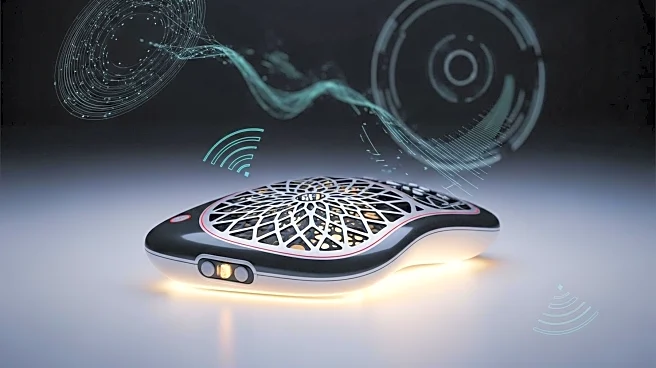What's Happening?
Fundamental XR has introduced Fundamental Touch, a wireless haptics platform designed to enhance human-machine interaction across various industries. The platform removes the need for physical tethers, allowing for greater mobility and performance in applications such as robotics, industrial training, automotive, aerospace, retail, and gaming. Fundamental Touch utilizes a client-server model to provide low-latency, high-fidelity haptic feedback, enabling users to experience realistic tactile sensations. The technology aims to improve training, operational efficiency, and user experience in sectors where precision and freedom of movement are critical.
Why It's Important?
The introduction of wireless haptics technology represents a significant advancement in immersive technology, offering new possibilities for industries reliant on human-machine interaction. By eliminating physical constraints, Fundamental Touch enhances the ability to train and operate machinery in complex environments, potentially improving safety and efficiency. This innovation could lead to advancements in teleoperation, digital twins, and simulation-based training, impacting sectors such as healthcare, defense, and industrial applications.
What's Next?
Fundamental XR plans to expand the use of Fundamental Touch across various industries, including healthcare, where it can aid in surgical training and improve outcomes. The company is also exploring applications in robotics and gaming, where realistic haptic feedback can enhance user experience and performance. As the technology gains traction, it may lead to further developments in wireless haptics, driving innovation in human-machine interaction.
Beyond the Headlines
The development of wireless haptics technology raises questions about the future of human-machine interaction and the ethical implications of increasingly immersive experiences. As industries adopt this technology, considerations around privacy, data security, and the potential for over-reliance on virtual simulations may emerge.









